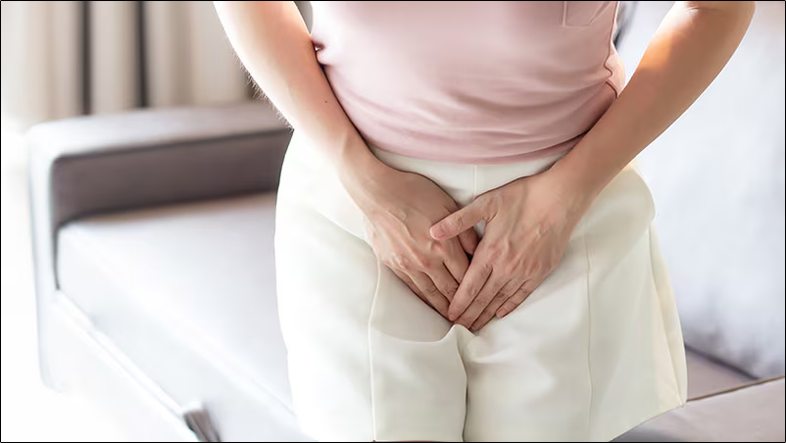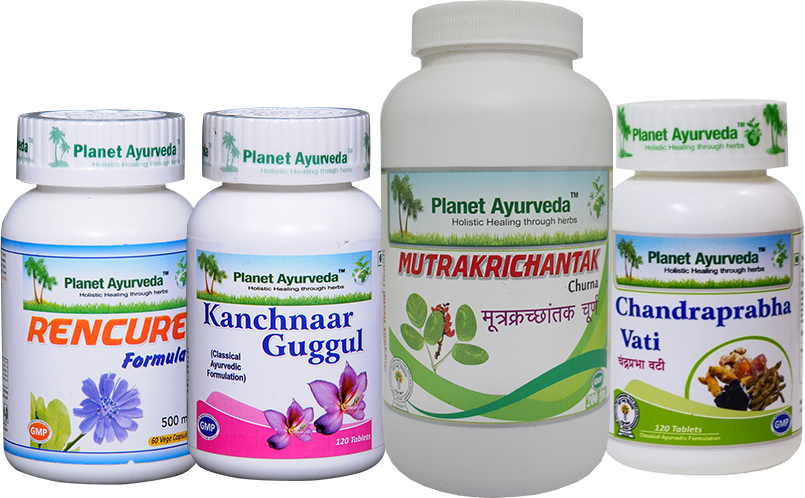How to Treat Recurrent Cystitis Naturally with Ayurveda
Abstract
Recurrent cystitis, a prevalent condition affecting many individuals, is marked by repeated episodes of bladder inflammation, causing symptoms such as discomfort, pain, and frequent urination. The condition is primarily caused by bacterial infections, with Escherichia coli (E. coli) being the most frequent pathogen. Other contributing factors, such as anatomical abnormalities, immune system issues, or sexual activity, may increase susceptibility. The recurrence of cystitis poses challenges in treatment, as repeated antibiotic use can lead to resistance and side effects. Standard treatment usually involves antibiotics, but there is increasing interest in natural and holistic approaches, including herbal remedies, In this article we will discuss this in detail with its Ayurvedic Aspect and management.
Introduction
Recurrent cystitis refers to the frequent occurrence of urinary tract infections (UTIs) that affect the bladder, leading to symptoms like painful urination, increased frequency, urgency, and discomfort. The condition is primarily caused by bacterial infections, with Escherichia coli (E. coli) being the most common pathogen responsible.

Types
Cystitis refers to inflammation of the bladder, and there are several types based on their causes and characteristics. The most common types include:
- Acute Cystitis:
This is the most common form of cystitis, usually caused by a bacterial infection (commonly Escherichia coli (E. coli)). It is characterized by sudden onset of symptoms such as painful urination, frequent urination, and lower abdominal discomfort. It typically resolves with antibiotic treatment. - Chronic Cystitis:
Chronic cystitis refers to long-term or recurring inflammation of the bladder, often due to repeated infections or other underlying conditions. This type can lead to persistent symptoms and may require ongoing treatment to manage the recurrence. - Interstitial Cystitis (IC):
Interstitial cystitis is a type of cystitis that does not result from bacterial infection. It is a chronic condition that causes bladder pain, urgency, and frequency without any clear bacterial cause. It is often associated with pelvic pain and can significantly impact quality of life. - Hemorrhagic Cystitis:
This type involves inflammation of the bladder with bleeding, leading to the presence of blood in the urine. It can be caused by infections, certain medications (like chemotherapy drugs), or radiation therapy. Symptoms include blood in the urine, painful urination, and pelvic discomfort. - Radiation Cystitis:
Radiation cystitis occurs as a result of damage to the bladder due to radiation therapy, often used to treat cancers in the pelvic region. It may cause symptoms such as frequent urination, urgency, painful urination, and, in some cases, blood in the urine. - Chemical Cystitis:
Chemical cystitis is caused by irritation of the bladder lining due to exposure to chemicals. This can result from the use of certain medications, contraceptives like diaphragms or spermicides, or from prolonged exposure to irritating substances such as hygiene products. - Eosinophilic Cystitis:
A rare form of cystitis that involves an immune system reaction. It is characterized by the presence of eosinophils, a type of white blood cell, in the bladder lining. Eosinophilic cystitis can cause urinary symptoms such as frequency, pain, and discomfort, and is often associated with allergies or autoimmune conditions. - Bacterial Cystitis:
Bacterial cystitis occurs when bacteria enter the urinary tract, often via the urethra, and cause infection. This is the most common cause of cystitis and is typically treated with antibiotics. - Non-Bacterial Cystitis:
This type of cystitis is not caused by an infection. It may be triggered by a variety of factors, including irritation, injury, or autoimmune responses. Interstitial cystitis is a common example of non-bacterial cystitis.
Causes
Recurrent cystitis is mainly caused by bacterial infections, but several factors can increase the likelihood of its recurrence. The primary causes include:
- Bacterial Infections: The leading cause of cystitis is the presence of bacteria, especially Escherichia coli (E. coli), which typically resides in the intestines. This bacteria can enter the urinary tract through the urethra, causing bladder inflammation.
- Anatomical Issues: Structural problems such as urinary tract blockages, kidney stones, or bladder irregularities can make it easier for bacteria to invade and persist, leading to repeated infections.
- Weakened Immune System: People with compromised immune systems, due to conditions like diabetes, HIV, or the use of immunosuppressive medications, are more vulnerable to UTIs and recurrent cystitis.
- Hormonal Changes: Hormonal shifts, particularly during menopause in women, can result in changes in the urinary tract that increase susceptibility to infections due to lower estrogen levels.
- Sexual Activity: Sexual intercourse can introduce bacteria into the urinary tract, increasing the risk of cystitis, especially in women. This phenomenon is often referred to as “honeymoon cystitis.”
- Incomplete Bladder Emptying: Not fully emptying the bladder while urinating can cause urine to linger, creating a fertile environment for bacterial growth and subsequent infection.
- Medical Devices and Catheters: The use of urinary catheters or other invasive medical devices can introduce bacteria into the urinary tract, increasing the likelihood of recurrent infections.
- Chronic Health Conditions: Conditions like bladder dysfunction, recurrent UTIs, or interstitial cystitis can contribute to the frequent recurrence of cystitis.
- Overuse of Antibiotics: Frequent or inappropriate use of antibiotics can disrupt the natural bacterial balance in the urinary tract, allowing antibiotic-resistant bacteria to grow and increasing the risk of recurring infections.
- Lifestyle and Dietary Habits: Insufficient fluid intake, consumption of irritants like caffeine, alcohol, and spicy foods, as well as poor hygiene practices, can all contribute to the development and recurrence of cystitis.
Symptoms
Recurrent cystitis manifests with a variety of symptoms, which are similar to those of a urinary tract infection (UTI). These symptoms include:
- Increased Urgency to Urinate: A frequent and intense need to urinate, often with only small amounts of urine being passed.
- Burning Sensation While Urinating: A painful or burning feeling during urination is a common complaint.
- Unusual Urine Appearance: The urine may appear cloudy, darker in color, or emit a strong, foul odor.
- Presence of Blood in Urine: Some individuals may notice blood in their urine, giving it a reddish or brownish tint.
- Lower Abdominal or Pelvic Discomfort: Pain or pressure in the lower belly or pelvic area, often with a sensation of fullness or discomfort.
- Incomplete Urination: A feeling of not fully emptying the bladder, along with frequent urges to urinate.
- Tiredness or Malaise: General feelings of exhaustion or weakness can occur due to the body’s response to the infection.
- Mild Fever: A low-grade fever may accompany the infection, though it is not always present.
- Pain During Sexual Activity: Some individuals may experience discomfort or pain during sexual intercourse, especially in women.
Diagnosis
Diagnosing recurrent cystitis involves several approaches to determine the cause and rule out other conditions. These methods include:
- Patient History: The healthcare provider will inquire about the patient’s symptoms, the frequency of urinary issues, any history of previous UTIs, and other relevant health conditions.
- Physical Examination: The doctor may perform a physical exam to check for tenderness in the lower abdomen or pelvic region, which could indicate inflammation or infection.
- Urine Test: A urinalysis is commonly performed to detect the presence of bacteria, blood, white blood cells, or other indicators of infection in the urine.
- Urine Culture: If an infection is suspected, a urine culture is often done to identify the specific bacteria responsible. This helps guide treatment by determining which antibiotics would be most effective.
- Cystoscopy: In some cases, a cystoscopy may be used. This procedure involves inserting a small camera into the bladder to look for structural issues, such as stones, tumors, or any abnormalities that may cause recurrent infections.
- Imaging Studies: Ultrasound or CT scans may be recommended to identify any structural problems in the urinary tract, such as kidney stones, blockages, or bladder abnormalities.
- Post-Void Residual Test: This test measures how much urine remains in the bladder after urination, which can help identify incomplete bladder emptying, a factor that can increase the risk of recurring infections.
- Blood Tests: Blood tests may be ordered if there are concerns about more serious infections or if the cystitis symptoms persist or worsen, helping to detect any complications.
- Assessment for Underlying Conditions: If there is a suspicion of other contributing factors like a weakened immune system, diabetes, or chronic health conditions, further tests may be conducted to evaluate these factors.
Treatment
The treatment for recurrent cystitis typically focuses on relieving symptoms, eradicating the underlying infection, and preventing future occurrences. The following approaches are commonly used:
- Antibiotics: The primary treatment for acute cystitis is the use of antibiotics to eliminate the bacteria causing the infection. For recurrent cystitis, a doctor may recommend a longer course of low-dose antibiotics to prevent future infections or prescribe antibiotics after sexual activity if it is identified as a trigger.
- Pain Relief: Over-the-counter medications such as phenazopyridine may be used to relieve pain, burning, and discomfort associated with urination. These medications act as a local anesthetic for the urinary tract.
- Urinary Alkalinizers: Medications or supplements that help neutralize the acidity of urine, such as sodium bicarbonate, may be recommended to reduce irritation in the bladder and promote healing.
- Hormonal Therapy: In postmenopausal women, vaginal estrogen therapy may be recommended to improve the health of the urinary tract lining and reduce the risk of infections caused by hormonal changes.
- Bladder Training: For some individuals, bladder training techniques may be recommended to improve bladder function and reduce the urgency and frequency of urination, particularly in those who experience frequent infections.
- Surgical Treatment: In cases where structural issues such as bladder abnormalities, kidney stones, or chronic urinary retention contribute to recurrent cystitis, surgical intervention may be necessary to correct these problems.
- Immunomodulatory Therapy: In cases of chronic or recurrent cystitis related to an underlying immune system issue, medications that support immune function may be considered.
Ayurvedic Overview
According to Ayurveda, there is no exact correlation but its symptoms can be related with Mutraghata, Mutrakricha, Vatika Shula in Basti. Mutraghata is decreased pee output and Mutrakricha is painful micturition. The root cause of these two conditions is Vitiation of Vata dosha and Pitta dosha. These two vitiated doshas reach Vasti (Bladder) and trouble the Mutravaha Srotas due to which symptoms like difficulty in urination appear.
Ayurvedic Medications
Internal Medication
- Arunadi Kwath
- Chandraprabha vati
- Kankayana Gutika
- Gokshura churna
- Gomutra haritaki
- Yavakshara
- Musta
- Punarnava
- Pashanabheda
External Therapies
- Tila Potali sweda
- Bilwadi Pinda sweda
- Hingvadi Lepa
- Yoni Prakshalan
Home Remedies for Recurrent Cystitis
1. Increase Water Intake
- Drink plenty of water throughout the day to help flush out bacteria and toxins from the urinary tract.
- Adding a pinch of baking soda (1/2 tsp in a glass of water) can help alkalize the urine and relieve the burning sensation.
2. Cranberry Juice
- Unsweetened cranberry juice has anti-inflammatory and antibacterial properties, which may help prevent bacterial growth in the urinary tract. Drink 1-2 cups daily.
- Alternatively, you can take cranberry supplements (consult a doctor for dosage).
3. Apple Cider Vinegar
- Apple cider vinegar has antibacterial properties that can help balance the pH of urine and prevent infections. Mix 1-2 tablespoons of apple cider vinegar with a glass of water and drink it 1-2 times a day.
4. Coriander Seed Tea
- Boil 1-2 teaspoons of crushed coriander seeds in water and drink this tea daily. It helps reduce inflammation and soothe the urinary tract.
5. Warm Compress or Sitz Bath
- Applying a warm compress to the lower abdomen can help to relieve pain and discomfort from cystitis.
- A sitz bath with Epsom salts or Chamomile can soothe the bladder area and reduce inflammation.
6. Probiotics
- Probiotics (like Yogurt with live cultures or probiotic supplements) can help restore the natural balance of bacteria in the urinary tract, preventing infections.
Yoga for Recurrent Cystitis
Yoga can help reduce stress, improve circulation to the pelvic area, and balance the urinary system. Here are some beneficial poses:
1. Setu Bandhasana (Bridge Pose)
- This pose helps improve circulation in the pelvic area, relieves tension, and strengthens the lower back and abdomen.
2. Viparita Karani (Legs-Up-the-Wall Pose)
- This gentle restorative pose helps reduce stress, promote relaxation, and improve blood flow to the pelvic organs.
3. Uttanasana (Standing Forward Bend)
- Uttanasana helps relax the abdomen and relieve lower back pain, which can be associated with bladder discomfort.
4. Matsyasana (Fish Pose)
- This pose opens up the chest and stretches the abdominal area, promoting relaxation and reducing discomfort in the urinary tract.
5. Baddha Konasana (Bound Angle Pose)
- This hip-opening pose improves circulation to the pelvic region, reducing tension and encouraging the flow of energy to the urinary system.
6. Pranayama (Breathing Exercises)
- Practice Ujjayi Pranayama (Victorious Breath) to reduce stress and calm the mind. Stress is often a trigger for recurrent cystitis.
Acupressure Tips for Recurrent Cystitis
Acupressure can help relieve pain, reduce inflammation, and improve the functioning of the urinary system. Here are some acupressure points that may help with cystitis:
1. Bladder 32 (B 32)
- Located in the lower back, on the sacrum. This point helps relieve pain and discomfort in the lower abdomen and urinary tract.
- To find it, lie on your back, locate the sacrum at the base of your spine, and press on the points just to either side.
2. Kidney 1 (K 1)
- Located on the sole of the foot, between the second and third toes. This point helps regulate water flow and supports kidney function.
- Press gently on this point with your thumb for 1-2 minutes.
3. Ren 3 (CV 3)
- Located about 1 inch below the navel, this point helps balance the bladder and supports the urinary system.
- Apply gentle pressure for 1-2 minutes.
4. Spleen 6 (SP 6)
- Located on the inside of the leg, about four fingers above the ankle. This point is beneficial for bladder issues and urinary problems.
- Apply steady pressure for 2-3 minutes.
6. Liver 3 (LV 3)
- Located on the top of the foot, between the first and second toes. This point helps balance the flow of energy in the body, relieving tension and promoting overall bladder health.
- Press gently for 1-2 minutes.
Herbal remedies for Recurrent cystitis from Planet Ayurveda
Planet Ayurveda is a reputable GMP certified brand that offers a wide range of herbal products based on Ayurvedic principles, aimed at promoting overall health and addressing specific concerns with natural, plant-based formulations.All their formulations are prepared under the supervision of MD (Ayurveda) scholars. They provide a variety of Ayurvedic formulations to support the management of Recurrent Cystitis including Chandraprabha vati, Kanchnaar guggul, Rencure formula, and Mutrakrichantak churna. Planet Ayurveda emphasizes a holistic approach, combining high-quality herbal formulations with dietary and lifestyle recommendations for long-term digestive wellness, making their products effective and safe for such conditions.
Product Description
1. Chandraprabha Vati
This tablet is a pure extract of polyherb like Shilajit (Asphaltum), Guggul (Commiphora Mukul), Kapoor (Cinnamomum Camphora), VAcha (Acorus Calamus), Mustak (Cyperus Rotundus), Haridra (Curcuma Longa), Amalaki (Emblica Officinalis) etc. All these herbs help to reduce inflammation and irritation in the bladder caused by recurrent infections. This formulation can help in combating bacteria and pathogens. It can help maintain the overall health of the urinary system. It has pitta balancing effects so it helps to control burning sensation.
Dosage : 2 Tablets two times a day with lukewarm water
2. Kanchnaar Guggul
This Tablet is pure extract of herbs like Kanchnar Bark (Bauhinia Variegata), Amalaki (Emblica Officinalis), Haritaki (Terminalia Chebula), Varuna Bark (Crataeva Religiosa), Cinnamon (Cinnamomum Verum) etc. All these herbs helps in Reducing inflammation in the bladder and urinary tract.Supporting the proper function of the kidneys and urinary system.Preventing the recurrence of urinary tract infections by enhancing detoxification and promoting the healing of tissues.Its anti-inflammatory effects can also help in alleviating the pain and discomfort associated with cystitis
Dosage : 2 tablets two times a day
3. Rencure Formula
This capsule is a Pure Blend of Punarnava (Boerhavia diffusa), Varun (Crataeva nurvala), Gokshura (Tribulus terrestris), Palaash (Butea monosperma), Kasni (Cichorium intybus). All these herbs help to eliminate toxins from the body . This formula can also alleviate the discomfort and pain associated with frequent urinary tract infections, providing relief from symptoms of cystitis.
Dosage : 2 Capsule two times a day with normal water after a meal.
4. Mutrakrichantak Churna
This herbal powder is a pure blend of poly herbs like Varun (Crataeva nurvala), Bhumi Amla (Phyllanthus Niruri), Gokshura (Tribulus Terrestris), Kalmegh (Andrographis Paniculata). These herbs have diuretic and anti-inflammatory properties that help in soothing the urinary tract, reducing inflammation, and promoting the elimination of toxins from the body.
Dosage : 1 tsp two times a day with warm water, after a meal.
Conclusion
In conclusion, recurrent cystitis is a chronic condition that can significantly impact an individual’s quality of life. It is often caused by underlying factors such as imbalances in the urinary tract, immune system dysfunction, or repeated bacterial infections. Ayurveda offers a holistic approach to managing recurrent cystitis by addressing the root causes through dietary modifications, lifestyle changes, and the use of herbs that promote urinary health, reduce inflammation, and enhance detoxification. Practices such as yoga, acupressure, and home remedies can also provide relief by soothing the bladder, improving circulation, and reducing stress. With proper management, including medical treatment and natural remedies, recurrent cystitis can be effectively controlled and prevented from recurring.






